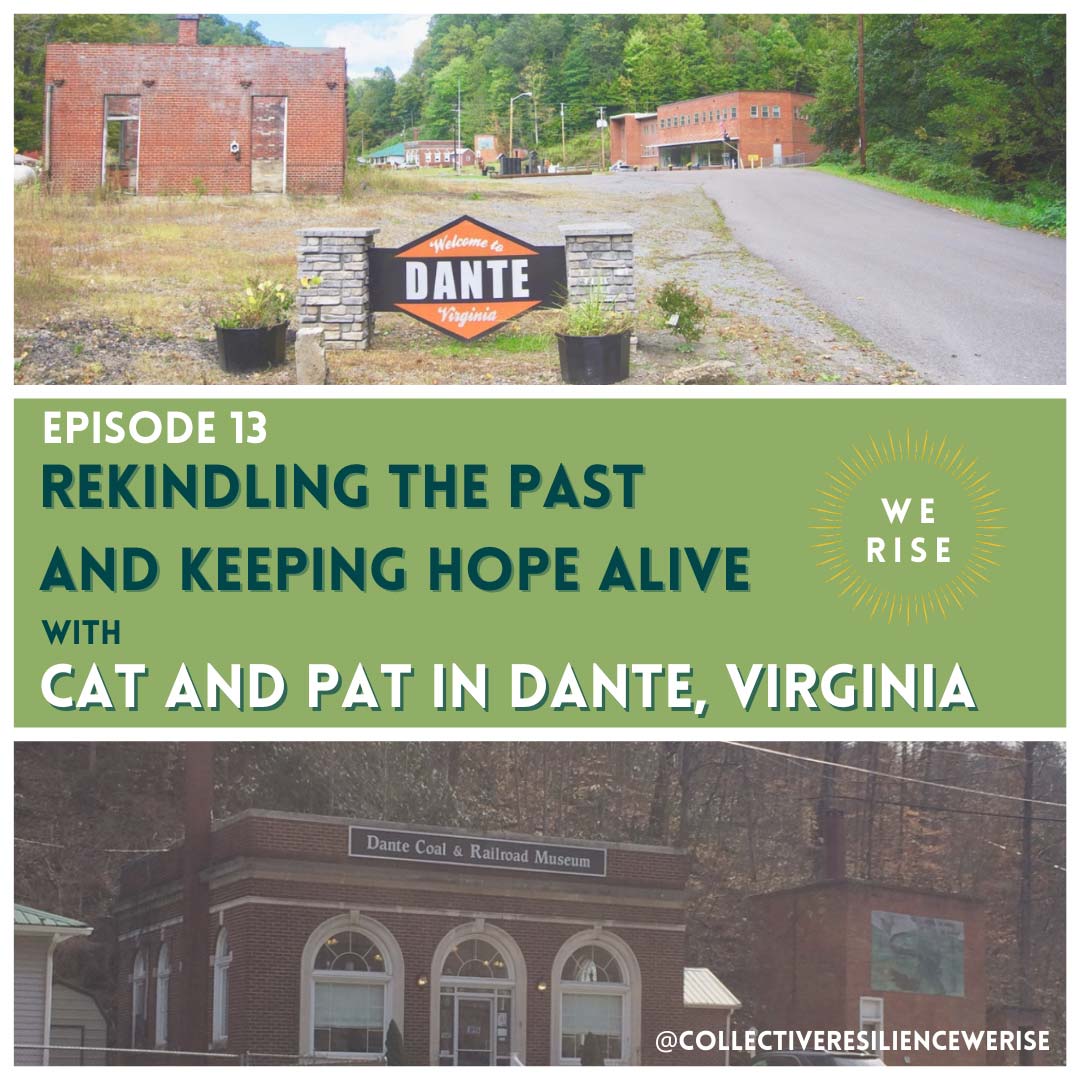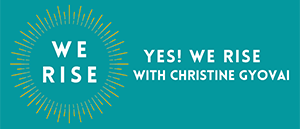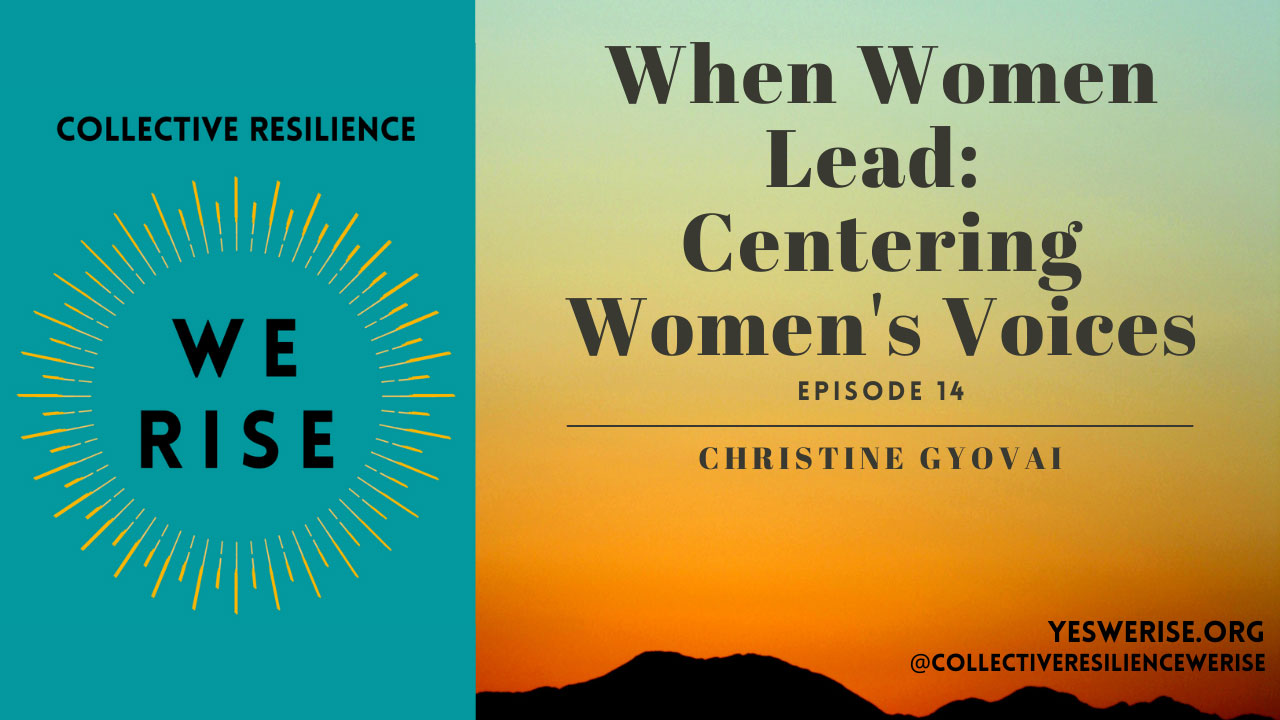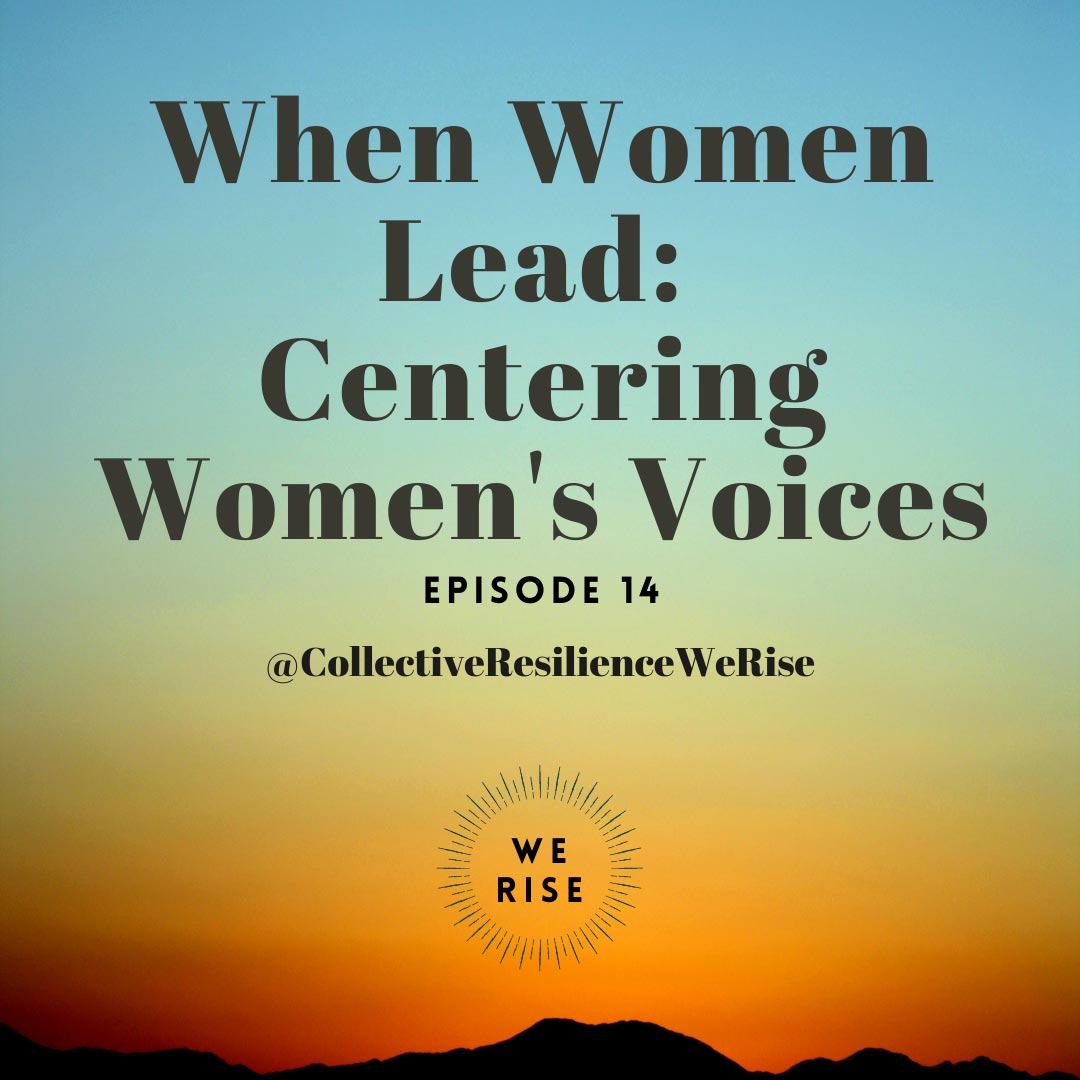
Episode 14:
When Women Lead: Centering Women’s Voices
Listen to the podcast on your favorite platform:
Apple Google Play Stitcher Spotify Amazon Music
Episode 14 Description
Welcome back to the We Rise Podcast! In today’s episode, Christine focuses on women leading and centering women’s voices, both key components to building community and creating transformation. Be inspired by the progress of women, including trans and non-binary folks, occupying more places of power. Hear stories of Wahleah Johns and Nicole Horseherder, leaders in the transition around coal and renewables in the Navajo Nation. From the power of story to connecting women to one another’s stories, this episode is about empowerment and hope.
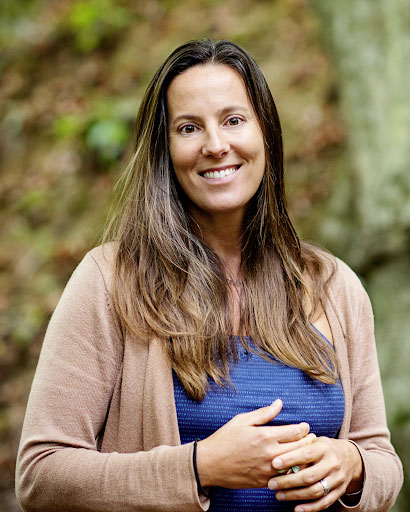
Christine Muehlman Gyovai is the Principal of Dialogue + Design Associates, is the granddaughter of a coal miner and firefly scientist, and has over twenty years of experience in creating community transformation and resilience. Named a “Cville 20” by Charlottesville magazine as a key driver for creating change, she is a professional facilitator and planner with certificates in charrettes, coaching, teaching yoga, mediation and permaculture design. A recipient of the Paul Dulaney Conservation Award, she has worked on projects in Appalachia and nationally focuses on increasing community resilience and sustainability. Christine holds a M.U.E.P. in Urban and Environmental Planning from the University of Virginia, a B.A. in Environmental Studies from Burlington College, and lives at the base of the Blue Ridge mountains in Virginia with her husband and two children.
Download the show Notes
FIND US ON YOUTUBE
Key takeaways
Breaking the ceiling and changing the status quo
The world is changing, and women are at the forefront. For the first time in history, we have a female vice president, a quarter of the US Congress is composed of women, half of the Biden-Harris administration cabinet is women, and of all S&P 500 firms, there is at least one female board member.
Women leading is not just good for equality and representation, it also improves economic growth. Research has shown that when 10% more girls are educated, a country’s gross domestic product increases by 3% on average!
Not only that, but working women invest 90% of their income back into the community – a stark contrast to the 35% from men.
When women are at the table, they provide inclusivity, creativity, empathy, and bring communities together. In addition to economic benefits, studies show that women have a profound and positive impact on climate legislation and policy as well.
When more women are on company boards, the result is a reduction in carbon emissions, improved energy efficiency, and investment in renewable energy. Women included in governmental decisions lead to treaties and policies that favor sustainability and the environment.
The significant impact of more women leaders cannot be ignored. Research by USAID found that countries are more inclusive, egalitarian and democratic, where women’s share of seats in political bodies is greater than 30%. Women are irreplaceable when it comes to driving economic growth, advocating for sustainability and environmentalism, and developing thriving families and communities.
Women making change for the Navajo Nation
In Appalachian towns, fracking oil fields, the Navajo Nation, and communities across the globe, cultural and economic structures are undergoing significant transformation increasingly led by women.
Wahleah Johns is a member of the Navajo, or Diné, tribe and comes from the community of Forest Lake, Black Mesa, Arizona. With a focus on sustainability, she currently works as the Director for the Office of Indian Energy at the US Department of Energy.
Before that, Wahleah was the co-founder of Native Renewables, a company providing power to homes on Hopi reservations using off grid solar photovoltaic systems. With heart, respect, and passion for protecting elders, Native Renewables is bringing solar power and security to elders in the Navajo and Hopi communities.
Nicole Horseherder, another leading woman, works toward equity and justice for the Navajo tribe. She has been organizing around the Navajo Generating Station for years, which was the largest coal-fired power plant in the western United States.
Nicole lives in Black Mesa where coal was mined to power the Navajo Generating Station. While the coal industry was thriving, Black Mesa aquifer levels dropped significantly due to water usage for processing coal. This was detrimental to the community, as the area receives low annual rainfall.
Nicole and her husband Marshall Johnson founded the non-profit Tó Nizhóní Ání, to stop the use of the aquifer and the coal mine and Black Mesa. Raising awareness, attending meetings, and encouraging opposition, Horseherder implored the Navajo tribal council to create a policy addressing the issue. As a result of her efforts in 2019, that Navajo Generating Station paid approximately 40 million to the Navajo Nation as well as millions to the Hopi.
The station was demolished in December of 2020, and since then her vision of a more sustainable energy economy, powered by wind and solar, is moving to the forefront of possibility.
When women lead, everyone wins
There is no illusion that historically, women’s voices have been marginalized, brushed aside, and often ignored in many cultures. The result has been inequality and the loss of a resilient future for all.
Especially throughout the COVID-19 pandemic, it has been crucial to center the voices of women. When considering the response to the pandemic, masculine energy typically focuses on a “fight or flight” response, but this is considered by researchers to be the opposite of what is needed during this time. Feminine energy on the other hand leans toward the “tend and befriend” and focuses on group safety, ensuring the needs of all people are met.
When women lead, communities are stronger. Centering women’s voices and creating positions of leadership on boards, in companies, and in elected positions result in a more equitable and prosperous future for everyone.
A report from the National Bureau of Economic Research titled, “‘The End of Men’ and Rise of Women In The High Skilled Labor Market”, states that women have a comparative advantage in tasks requiring social and interpersonal skills.
From the COVID pandemic to struggling communities, collaborative, social, and interpersonal skills are key not only to surviving, but also to resilience and thriving. Even women without skills, knowledge, or resources are stepping up to the plate. They are taking charge and boldly creating a better future for their communities.
This can be seen through the incredible work of women such as Mayor Debra Horne in Dungannon, VA and Lou Ann Wallace of St. Paul, VA. Both of these women have worked tirelessly to transform their communities resulting in a revitalization of towns that for years had been struggling.
References
[1] Johnson, S. (2021, January 31). 2021 Is a Tipping Point for Female Leaders. Bloomberg Opinion. https://www.bloombergquint.com/gadfly/women-leaders-are-doing-better-during-the-pandemic
[2] Gates, M. (2015, March 9). Why Hiring is Good For Business. Fortune. https://fortune.com/2015/03/09/melinda-gates-why-hiring-women-is-good-for-business/
[3] Why Invest in Women. (2020, January 7). USAID. https://2012-2017.usaid.gov/infographics/50th/why-invest-in-women
[4] Investing in Women and Girls. (2020, January 5). The Organisation for Economic Co-operation and Development (OECD). https://www.oecd.org/dac/gender-development/investinginwomenandgirls.htm
[5] Empowering Girls & Women (2020, January 20). Clinton Global Initiative. https://www.un.org/en/ecosoc/phlntrpy/notes/clinton.pdf
[6] Rodgers, R. (2021, February 28). Why We Do This Work. Hello Seven. https://helloseven.co/
[7] Cherneff, A. (2012, June 20). 6 Reasons To Invest In Women. The Huffington Post. https://www.huffpost.com/entry/invest-in-women_b_1612911
[8] Rodriguez, L. (2020, April 28). Why Investing in Women Helps Save the Planet. Global Citizen. https://www.globalcitizen.org/en/content/why-investing-in-women-helps-save-the-planet/
[9] Why Invest in Women. (2020, January 7). USAID. https://2012-2017.usaid.gov/infographics/50th/why-invest-in-women
[10] Empowering Native Communities (2021, February 2). Native Renewables. https://www.nativerenewables.org/
[11] Kutz, J. (2021, February 1). The fight for an equitable energy economy for the Navajo Nation. High Country News https://www.hcn.org/issues/53.2/south-coal-the-fight-for-an-equitable-energy-economy-for-the-navajo-nation
[12] Gerino, D. (2020, October 15). What Germany Can Teach the US About Quitting Coal. Inside Climate News. https://insideclimatenews.org/news/15102020/germany-coal-transition/
[13] Kutz, J. (2021, February 1). The fight for an equitable energy economy for the Navajo Nation. High Country News https://www.hcn.org/issues/53.2/south-coal-the-fight-for-an-equitable-energy-economy-for-the-navajo-nation
[14] Doyle, J. (2020, April 16). Women’s Resilience Is Saving the World. Medium. https://gen.medium.com/womens-resilience-is-saving-the-world-b46f42c74236
[15] Ten things you can learn from women’s resilience that will help you stay strong in the time of COVID-19 (2020, May 19). UN Women. https://www.unwomen.org/en/news/stories/2020/5/compilation-ten-things-you-can-learn-from-womens-resilience
[16] Cortes, G. et al. (2018, November). The “End Of Men” and Rise of Women in the High-Skilled Labor Market Bureau of Economic Research http://www.nber.org/papers/w24274
[17] New Research Shows Women Are Better at Using Soft Skills Crucial For Effective Leadership and Superior Business Performance. (2016, March 4). Korn Ferry. https://www.kornferry.com/about-us/press/new-research-shows-women-are-better-at-using-soft-skills-crucial-for-effective-leadership
[18] Clinch Valley Program. (2021, February 27). The Nature Conservancy. https://www.nature.org/en-us/about-us/where-we-work/united-states/virginia/stories-in-virginia/clinch-valley-program/
notable quote from christine
“When looking at how to grow resilience and environmental sustainability, women are leading in ways that are new and innovative, creating lasting change at many levels. Women are showing up with their remarkable spirit, energy, and ideas to ignite inspiration and initiate action. The world is changing as women rise and lead together.”
Links/resources mentioned
Rachael Rogers of Hello Seven and author of We Should All Be Millionaires
For more information on studies and research that we referenced in this episode, please see the references below.
Find out more about Wahleah Johns and the work of Native Renewables.
Learn more about Nicole Horseherder and incredible work of her and her husband’s non-profit, Tó Nizhóní Ání.
Read more from “‘The End of Men’ and Rise of Women In The High Skilled Labor Market”, as reported by The National Bureau of Economic Research.
Tune in to Episode 4 of the Collective Resilience: We Rise Podcast with Lou Ann Wallace.
Tune in to Episode Episode 9 of the Collective Resilience: We Rise Podcast with Mayor Horne.
The Yes! We Rise podcast is produced by Dialogue + Design Associates, Podcasting For Creatives, with music by Drishti Beats.
Follow Yes! We Rise on Facebook and Instagram.
Please rate, review, and subscribe to the podcast so we can continue spreading our message far and wide. Find our email list at the website: www.yeswerise.org. Thanks for listening.
Don’t miss an episode — follow us on Spotify and subscribe via Apple Podcasts, Stitcher, Google Play, or Amazon Music and please leave us a review wherever you listen.
Jump to:
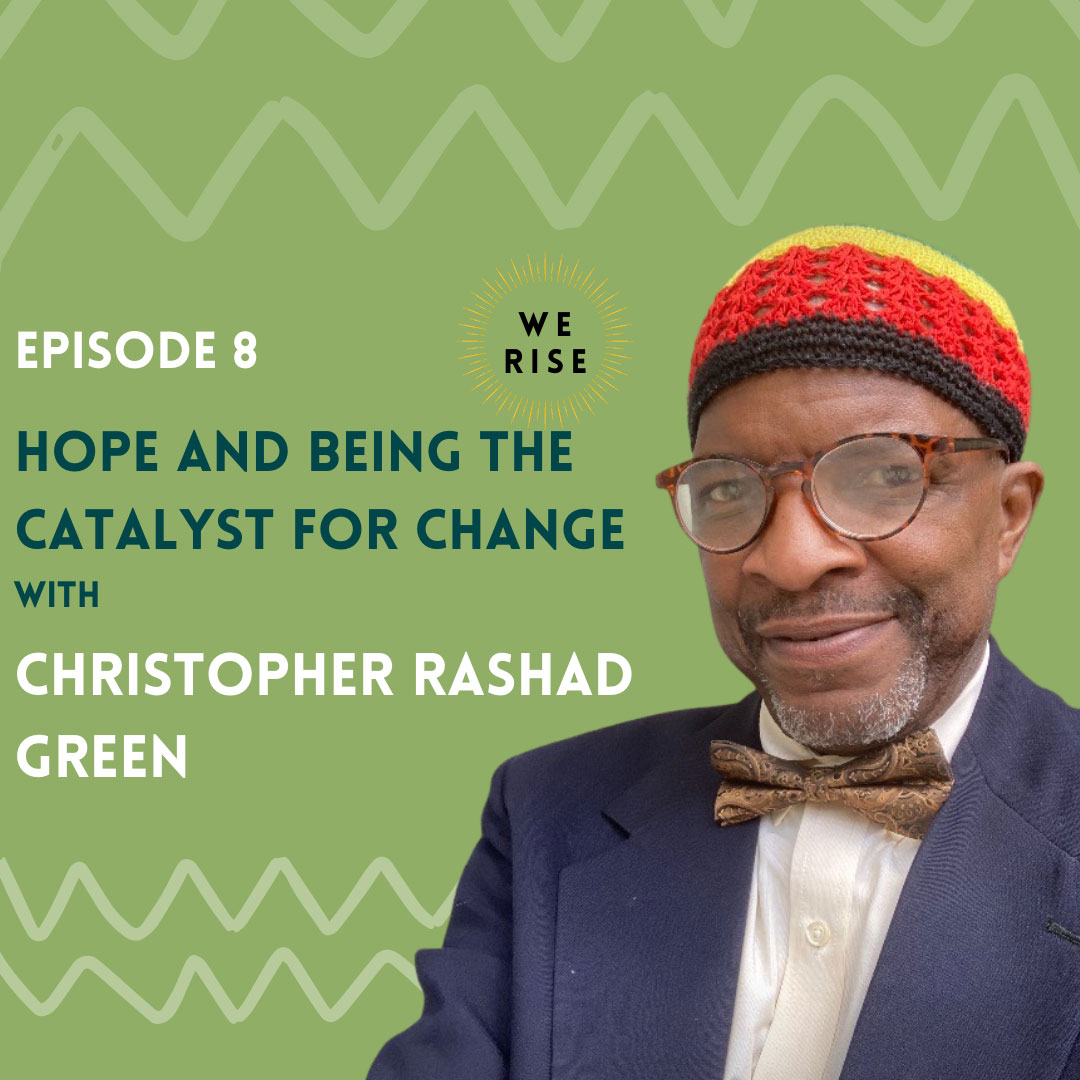
Episode 8
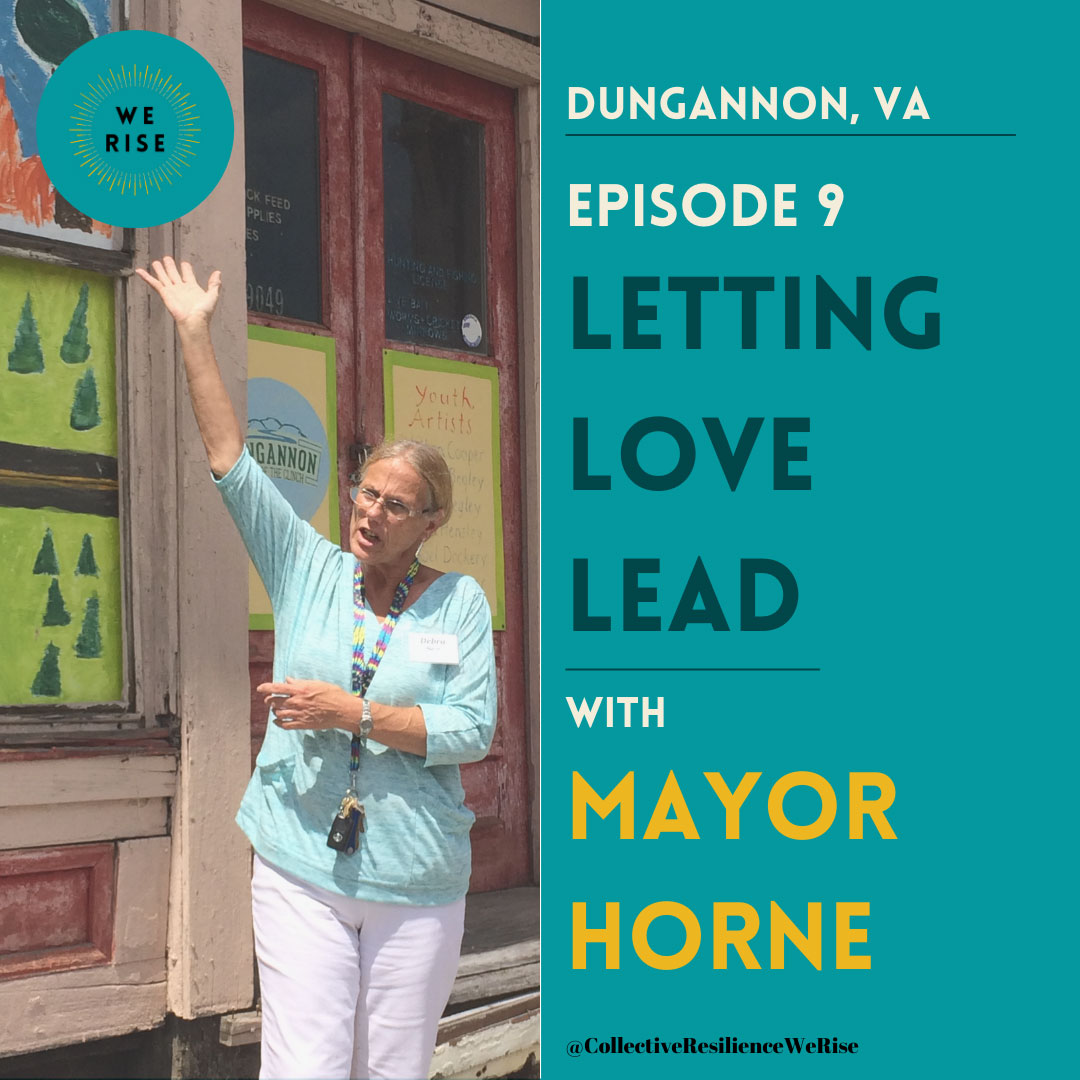
Episode 9
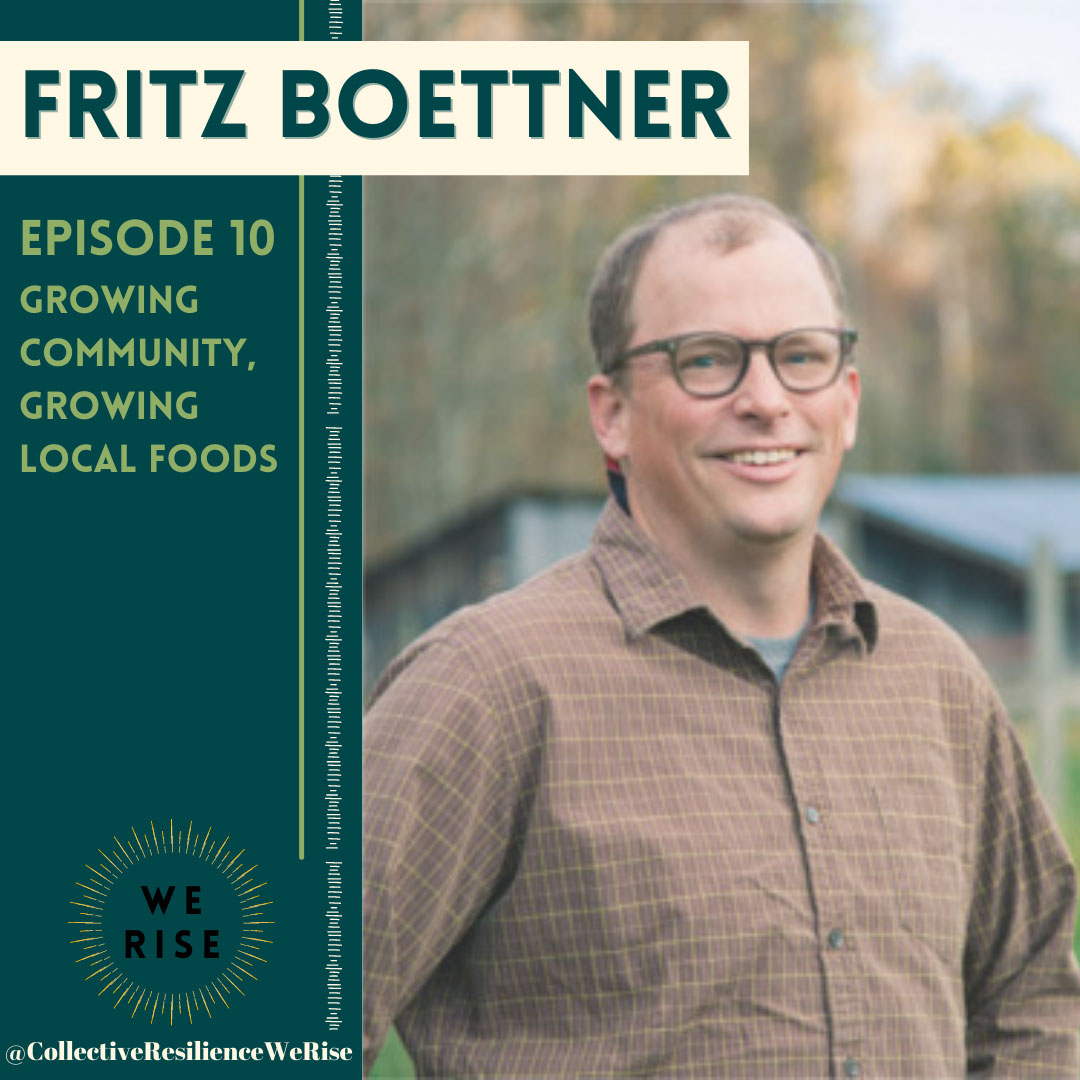
Episode 10
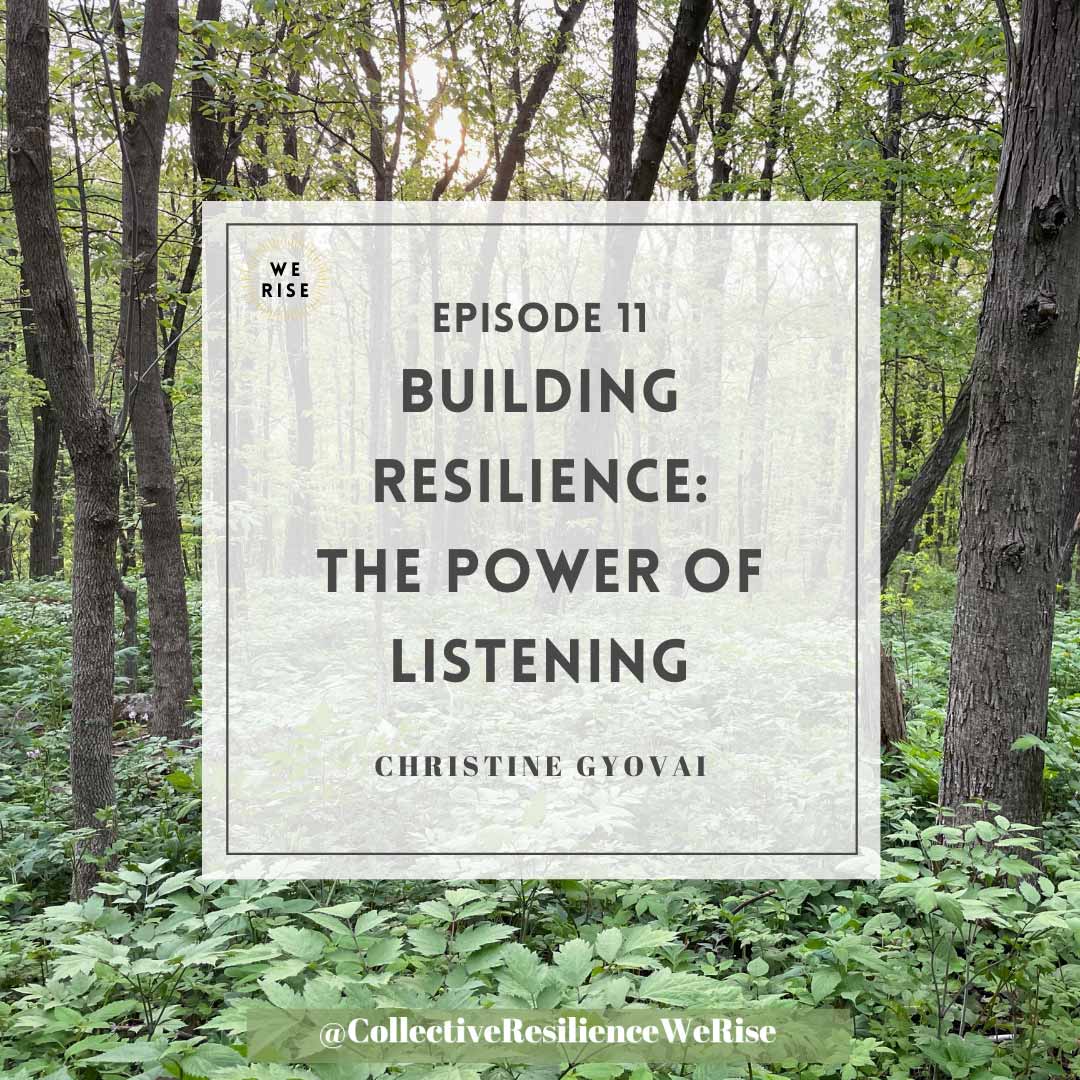
Episode 11
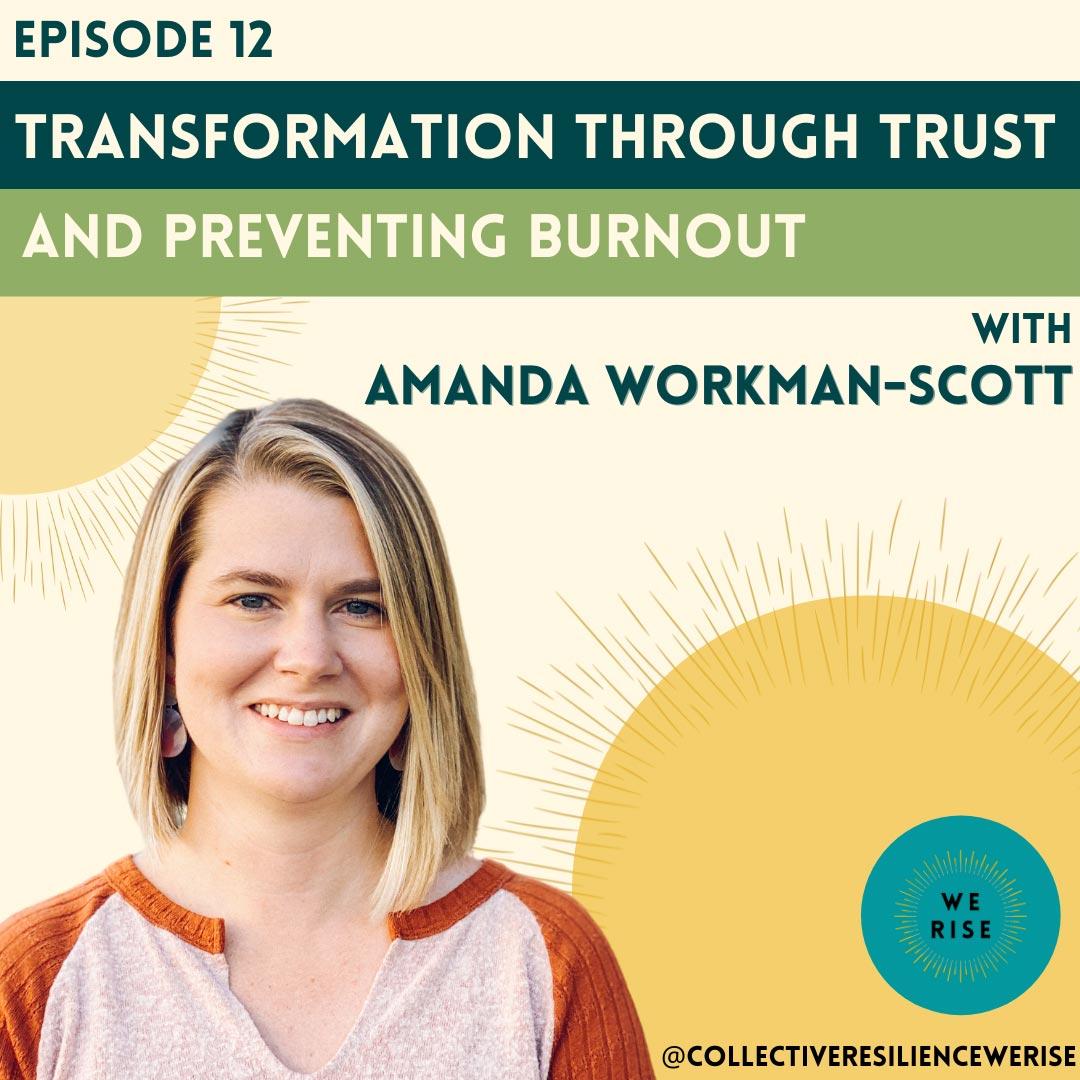
Episode 12
